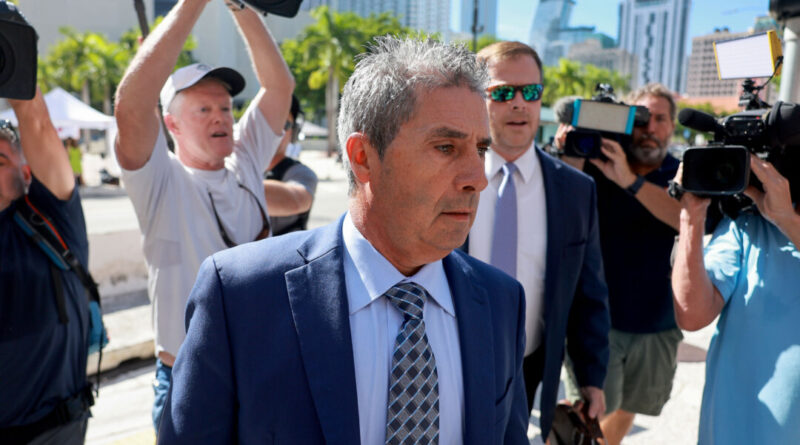The court has dismissed the appeal concerning Trump following a request from former special counsel Jack Smith.
The U.S. Court of Appeals for the 11th Circuit has approved the Department of Justice’s (DOJ’s) request to dismiss its case against President Donald Trump’s two co-defendants involved in the Florida classified documents case.
A
Feb. 11 order officially confirmed the dismissal of the appeal for the two Mar-a-Lago staff members—Carlos De Oliveira and Waltine Nauta—who were included in an indictment filed by former special counsel Jack Smith. Under President Joe Biden, the DOJ had appealed Florida Judge Aileen Cannon’s ruling to dismiss the case, asserting that Smith’s appointment was unconstitutional.
Last month, the DOJ requested the court to dismiss the appeal with prejudice regarding De Oliveira and Nauta. Smith’s team had previously sought the dismissal of the appeal concerning Trump following his election. The 11th Circuit
approved that request back in November 2024.
The dismissal on February 11 marked the conclusion of Smith’s two contentious prosecutions against Trump. Another case related to election interference
also concluded in November 2024 at Smith’s request.
Both Smith and Jay Bratt, a counterintelligence official associated with the case,
departed from the department before Trump assumed office on January 20.
The DOJ’s January motion to dismiss came after Cannon obstructed the release of the second volume of Smith’s report concerning the classified documents case.
Cannon ruled in favor of an emergency motion submitted by Nauta and De Oliveira. The prior administration had attempted to permit selected members of Congress to view a redacted version of the report. In her January 21 order, Cannon
stated that “there is certainly a reasonable likelihood that review by members of Congress as proposed will result in public dissemination of all or part of Volume II.”
The dismissal also raises questions about the constitutionality of special counsel appointments. Judge Cannon noted that Smith’s appointment infringed upon the appointments and appropriations clauses of the U.S. Constitution.
In the case regarding Trump’s presidential immunity, Supreme Court Justice Clarence Thomas voiced a concurring opinion indicating concerns over the legality of special counsel appointments.
“In this instance, the Attorney General seemingly appointed a private citizen as Special Counsel to prosecute a former President on behalf of the United States,” he
stated in July 2024. “However, I am uncertain that any office for the Special Counsel has been ‘established by Law,’ as required by the Constitution.”
He referenced Article II of the Constitution, which defines the president’s authority to appoint individuals within the executive branch.
Smith contended that Cannon’s ruling was flawed, partly citing a case in which the U.S. Court of Appeals for the District of Columbia Circuit upheld former special counsel Robert Mueller’s appointment.
TJ Muscaro contributed to this report.




